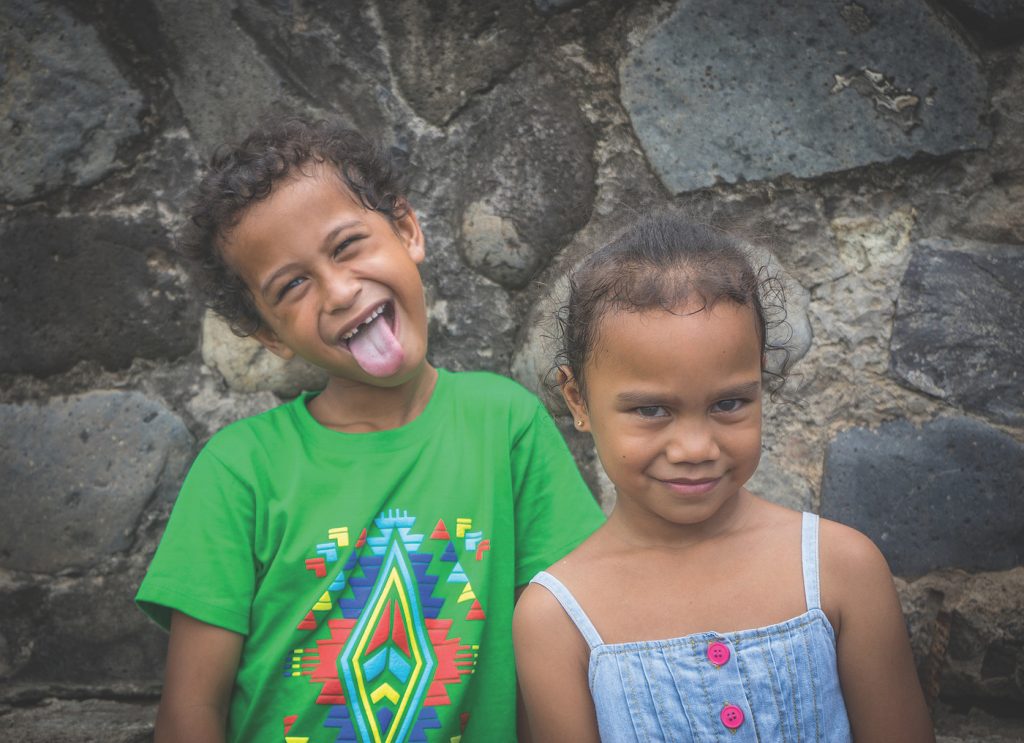40 Years of Transforming the Lives of Children and Youth in the Foster Care and Juvenile Justice Systems

The Youth Law Center’s Executive Director Jennifer Rodriguez knows just how hard being a child in the foster care and juvenile justice systems can be. Rodriguez grew up in foster care and by her teens was incarcerated. She experienced homelessness, was trafficked, and struggled to find housing or employment because she had a juvenile record.
“I ended up experiencing all the things that we advocate against,” she says.
Rodriguez turned these experiences into action: first as a young person advocating for policy change in Sacramento, then earning her law degree, and finally assuming the helm of the San Francisco-based Youth Law Center (YLC), widely regarded as one of the most influential child advocacy organizations in the country.
YLC has improved the lives of abused and neglected children and youth across America. They work closely with the top experts in child development to change child welfare and juvenile justice practice. YLC’s work has helped to decrease the use of solitary confinement, has decreased youth suicide in juvenile detention, and has decreased the use of inhumane practices in juvenile facilities, including the use of pepper spray, leg chains, and violent restraints against young people.

Today, Rodriguez leads YLC in its mission to reconstruct foster care and the juvenile justice systems into institutions that create positive changes for children. YLC’s advocacy is centered around listening to those directly impacted, including children, young adults, birth families, and foster families so that it’s their experiences that drive change. This change is implemented via legal advocacy, litigation, and policy changes that transform how systems work with children and families. For over four decades, YLC has led the field to transform systems to be truly child-focused and research informed. YLC’s impact on the lives of children includes: advocacy resulting in closure of dangerous youth prisons and institutions; outlawing the practice of sending foster and juvenile justice involved youth to out-of-state institutions where youth have died and been seriously injured; increasing support for youth to live in families in their community; and ensuring youth who are transitioning to adulthood have access to housing, economic support, and postsecondary education so they can thrive.
YLC is also known for applying the latest child and brain development research to practice and policy. When research showed life-long negative impacts babies and toddlers experienced when placed in foster care shelters, YLC sued and changed the law in California, Florida, and Nevada to stop the practice. Their advocacy led to a landmark California and federal law restricting institutional care for all children except as a last resort.
Most importantly, to help child welfare achieve the goal of moving away from institutions so every child receives excellent parenting in a family, YLC launched the Quality Parenting Initiative (QPI), a national movement of more than 80 jurisdictions and 10 states committed to ensuring that all children in care have excellent parenting and lasting relationships so they can thrive and grow. This year, YLC received a “Children’s Champion” award from the federal government for QPI’s success in changing policy, practice and culture to “Reshape Foster Care as a Support For Families.”
“We have changed the field to no longer tolerate the practice of warehousing children in institutions because they now understand how this practice disrupts childhood,” Rodriguez says. “Now, through QPI, we are working across the county to ensure every one of those children receives the love and parenting they deserve.”
In response to the pandemic, Rodriguez says YLC was the first advocacy organization in the country to create emergency advocacy guides for how foster youth could be connected to resources for funding for rent, food, education, and mental health services. YLC led efforts in California and with Congress to ensure pandemic response bills included critical support for youth in foster care to prevent homelessness and create a safety net. With children of her own, Rodriguez appreciates that her work is much more than stopping bad things from happening, it’s about making children’s lives better.
“What I want for my children and all of the children that YLC touches is for them to realize happiness and thrive – to feel loved and cared for. These are not privileges, but rights for every child.”
Youth Law Center
Donate now!http://www.ylc.org
(415) 314-4386
Executive Director: Jennifer Rodriguez
Mission
The Youth Law Center advocates to transform foster care and juvenile justice systems across the nation so every child and youth can thrive.
Begin to Build a Relationship
We know you care about where your money goes and how it is used. Connect with this organization’s leadership in order to begin to build this important relationship. Your email will be sent directly to this organization’s Director of Development and/or Executive Director.
YLC is, quite simply, effective. The team, led by Jennifer Rodriguez, is top notch, bringing together legal expertise, lived experience, a commitment to being youth-centered, and the advocacy chops to effect systemic change. A recent example is the advocacy around out-of-state placements for foster youth. YLC researched 16 facilities housing CA kids and found abuse, neglect, appalling conditions, and rights violations. YLC’s advocacy campaign resulted in the State of CA halting admissions to those facilities and beginning the process to decertify them in favor of family-based placements. Systems change work takes time but is deeply satisfying, and why the Foundation continues to support YLC.
The Youth Law Center is truly a cornerstone organization, successfully building a network of nonprofit and public sector advocates committed to promoting pathways to and through postsecondary education for youth connected to the juvenile justice system. By fostering links between the probation system and California’s higher education institutions, YLC and its policy advocacy strategy have advanced the notion that justice reform must meaningfully include youth. The team at Youth Law Center is a valuable thought partner to Cal Wellness as we consider our investments to help improve the wellbeing of youth who are too often ignored.
Give to Create Opportunity for Justice-Impacted Youth
Donations to the Youth Law Center will directly support its advocacy to transform foster care and juvenile justice systems so that every young person has access to postsecondary education.
“With additional funding, we can expand our advocacy to ensure that more youth become tomorrow’s leaders,” says Jennifer Rodriguez, Youth Law Center’s Executive Director.
To illustrate the important impact of donations:
•A $1,000 gift would allow YLC to invest in the leadership of a justice-impacted youth to work in partnership with advocates on policy reforms.
•$20,000 is enough to fund an entire advocacy leadership academy to give young people the skills they need to change the very systems that so often hurt them.
•With $100,000, YLC could launch a campaign to secure additional state investment in postsecondary education for justice-impacted youth in order to ensure equitable futures for tens of thousands of vulnerable young people.
Key Supporters
Alyssa Martin Anderson
Babak Naficy
Chrystie Chung
Fatima Goss Graves
Heidi Foreman
Honorable Tomar Mason
Howard and Carol Fine
Iris Hu
Joy Singleton
Katee Peek
Matthew and Moon Gemello
Mehrzad Khajenoori
William S. Koski and Sundari Wind
Akonadi Foundation
Andrus Family Fund
Annie E. Casey Foundation
The California Wellness Foundation
May and Stanley Smith Charitable Trust
Tipping Point Community
van Löben Sels/RembeRock Foundation
The Walter S. Johnson Foundation
Zellerbach Family Foundation
